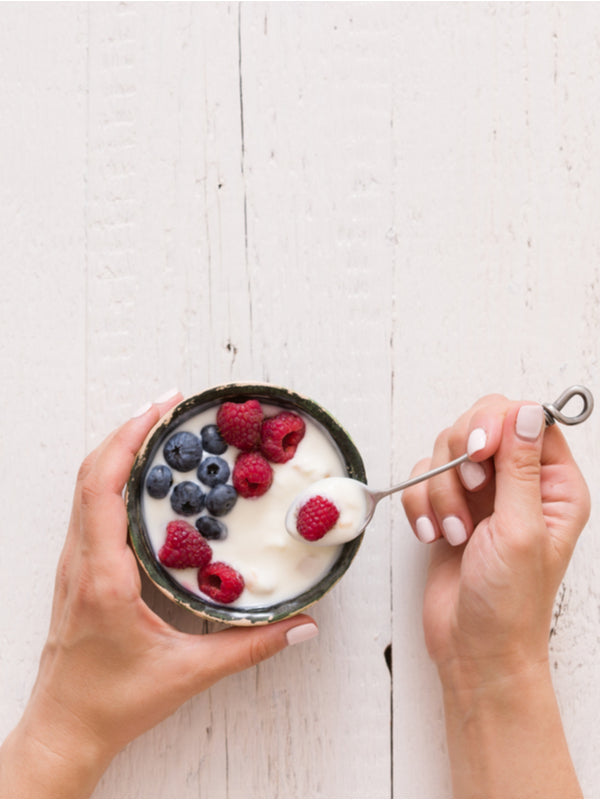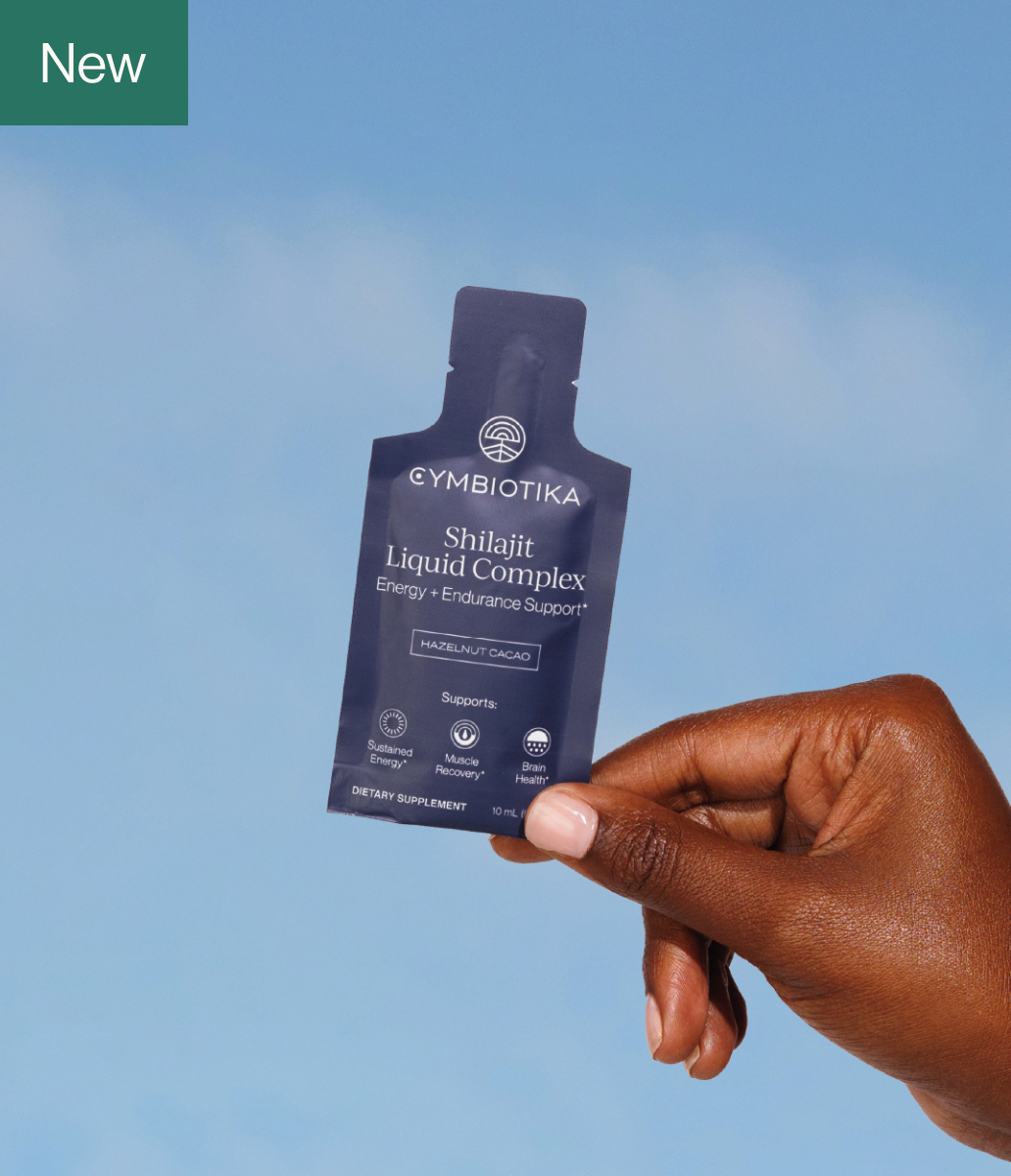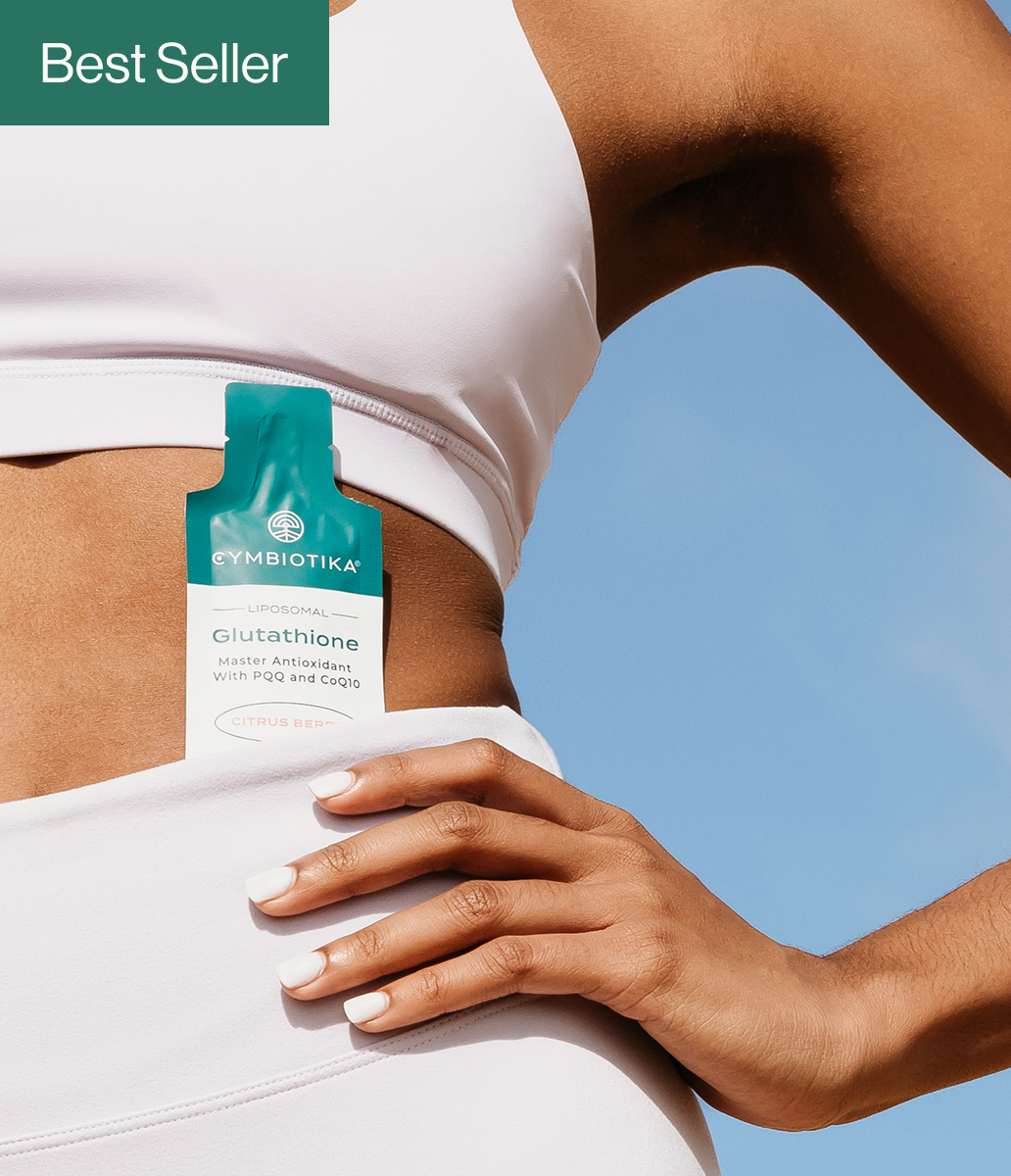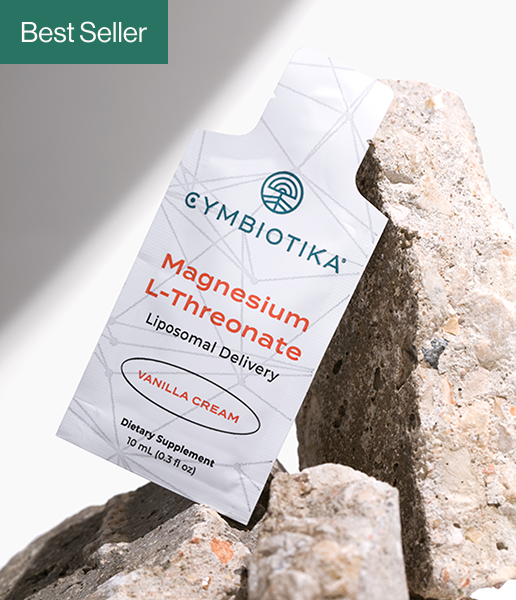
Everyone’s body has certain likes and dislikes. From allergies and food sensitivities to healthy nutrients and gut-friendly organisms—the digestive system can be finicky about what goes into it. The same logic can be applied to bacteria, as well.
Your stomach is no stranger to bacteria, but not all microbes are created equal. While the gut may love some strains of bacteria, other types can have you feeling bloated, nauseous, and even lead to serious illness, which is why it’s important to be aware of signs of an unhealthy gut.
If you’re looking to leave stomach issues in the dust—without ridding your body of the helpful organisms it needs—read on for everything you need to know about how to get rid of bad bacteria in the gut!
What Kinds of Bacteria Live in the Gut?
In order to maintain proper gut health, it’s important to understand the types of bacteria that live inside your body. Digestive bacteria can be broken up into two categories: good and bad.
Good Gut Bacteria
All stomachs need some type of bacteria. The “good” bacteria in your body perform a wide variety of jobs, including:
-
Digestion – Without bacteria, digestion would be virtually impossible. The gut microbiome is a system of organisms that help break down the foods you eat and extract their essential nutrients. The body has trillions of these good bacteria, but some of the most common bacterium strains include lactobacilli and bifidobacteria (1).
-
Mental health – Studies show that proper gut health is heavily linked to mental stability. This is because the brain sends electrical signals to different parts of the body, and—in return—the body sends signals back. When your digestive system is rich with healthy bacteria, the positive signals sent to the brain can promote emotional regularity and faster thought processing (2).
- Reduce bad bacteria – Good bacteria are essentially the enemy of bad bacteria. A normal and healthy balance of beneficial bacteria in the gut can help prevent the spread of—and reduce the risks associated with—bad bacteria (3).
Now that you understand the importance of good bacteria, it’s time to delve into the real topic of this article: the bad bacteria.
Bad Gut Bacteria
In a perfect world, all bacteria would aid digestion and mental health. Unfortunately, there are just as many dangerous kinds of bacteria as there are helpful ones. Here’s how these harmful gut microbes can affect the human body:
-
Diabetes – Poor gut health is associated with a number of chronic medical conditions. Bacterium strains like clostridium and enterobacteriaceae are found in artificial sweeteners, unhealthy soil, and contaminated water (4). These bacteria can spike blood sugar levels, damage insulin response, and increase your risk of type 2 diabetes (5).
-
Illness – Bad gut bacteria, like E. coli, can trigger a number of illnesses in the human body. Depending on the strain, an E. coli outbreak can cause urinary tract infections, diarrhea, pneumonia, and respiratory infections. Food poisoning is often the cause of digestive conditions related to E. coli (6). Other bacteria that can cause digestive problems including salmonella, vibrio, and C. jejuni (7).
-
Weight gain – When you have a deficiency of good bacteria in the gut, harmful bacteria can send signals to the brain and pituitary glands. These signals can trick the body into feeling hungry, even after a full meal, which can lead to overeating, rapid weight gain, and painful digestive issues (8).
- Heart health – The bacteria in high-cholesterol foods—such as red meat, eggs, and dairy—can cause your liver to produce trimethylamine-N-oxide (TMAO). TMAO is a chemical that aids in cholesterol build-up, and increases the risk of blocked arteries and heart disease (9).
Bad bacteria in the gut can be pretty scary. Fortunately, you have the power to balance the scales of good bacteria and bad bacteria. If you’re making an effort to improve your gut health, there are plenty of ways to promote beneficial bacteria strains while simultaneously flushing out the bad ones.
Here’s what you can do:
Boost Good Bacteria
Proper digestive health isn’t just about removing bad bacteria; it’s also about promoting good bacteria to help fight these unfavorable organisms. To help give your gut biome a little boost, try incorporating these healthy substances into your daily routine:
-
Probiotics – Fermented foods—such as sauerkraut, cultured yogurts, and kombucha—contain high levels of probiotics and are great foods to cleanse gut toxins. Probiotics are live organisms found in food, which are then added to the gut biome when ingested. If you’re trying to increase your levels of good bacteria, fermented foods are an easy way to accomplish this.
-
Supplements – It’s hard for your diet to provide all the nutrients you need in a day. This is especially true for individuals fighting off bad bacteria—sometimes, you just need a little boost. That’s where dietary supplements come in handy. At Cymbiotika, we have a large selection of products that promote a healthy gut biome. Our ReGenesis supplements contain Lactobacillus Rhamnosus, a strong probiotic that’s easily absorbed by the digestive system.
-
Prebiotics – A diet rich in plant-based foods, such as beans, whole grains, and vegetables, can help promote healthy bacteria in the gut. These foods contain prebiotics due to their high fiber content. Prebiotics are complex fibers that the digestive system cannot break down—thus requiring the help of gut bacteria. Digesting these compounds provides a workout for good gut bacteria and promotes the growth and multiplication of these essential organisms (10).
- Polyphenols – Many foods have gut-friendly compounds known as polyphenols. Polyphenols are similar to prebiotics, as they are not easily absorbed by the digestive system. When polyphenols reach the colon, they’re broken down by healthy bacteria, like bifidobacteria and lactobacilli. Polyphenols have also been linked to reduced levels of bad bacteria, like clostridia. To boost the strength of healthy gut bacteria, a diet rich in polyphenols and prebiotics will keep every part of the G.I. tract in good shape (11).
These are just a few of the ways you can boost your levels of good bacteria. A healthy gut biome is your first line of defense against harmful bacteria strains and the illnesses they can cause, so always make sure to watch your diet and take supplements if needed.
Flush Out Bad Bacteria
Increasing good bacteria is always a good idea—but what does one do when bad bacteria take over? In serious cases of bacterial infection or harmful bacterial overgrowth, additional treatment may be necessary.
Here are some ways to help flush this bad bacteria out of your system:
-
Eat anti-inflammatory foods – Foods rich in omega-3 fatty acids—like nuts, flaxseed, and avocados—have strong anti-inflammatory properties. These foods help reduce pain and irritation in the digestive tract caused by bad bacteria. Soothing this inflammation will decrease damage and increase your body’s immune response, allowing for unhealthy gut bacteria to be flushed out more easily (12).
-
Cut out sugar – Sugary treats can sometimes be considered the worst foods for gut health because bad bacteria love sugar. High levels of refined sugar create an environment in the gut that feeds these pathogens, allowing them to grow stronger and multiply. In addition to eating healthy, anti-inflammatory foods, it’s also important to cut out any unhealthy foods that could be fueling a bacterial outbreak (13).
- Managing your antibiotics – Unfortunately, serious cases of bacterial infection may require antibiotics. Although antibiotics do a thorough job of killing off bad bacteria, they can also harm the good bacteria in your gut, as well. If you are prescribed a treatment of antibiotics to treat a bacterial infection, make sure to increase your intake of bacteria-rich foods and supplements—in order to avoid nausea and gastrointestinal problems (14).
If you find yourself suffering from an outbreak of bad bacteria, improving your diet is the best way to clean your gut. While natural remedies are always preferred, a severe bacterial infection may require antibiotics. Don’t be afraid to seek medical help if symptoms continue to get worse.
Exercise and Gut Health
In addition to dietary changes, a proper exercise routine can also promote good bacteria in the digestive system.
Studies show that active patients have significantly healthier gut biomes than those with sedentary lifestyles. The link between exercise and bacteria is not fully understood by scientists yet, but there are some theories in the works:
-
Burning fat – Some experiments point at fat content as a reason for higher levels of bad bacteria. When fat is burned during exercise, inflammation is reduced in the digestive tract. Scientists believe this may create a hostile environment for bad bacteria strains and a hospitable one for good strains.
-
Digestion – When you exercise, your gastrointestinal organs contract. This can promote faster digestion and more frequent bowel movements. When food is processed more efficiently, the chances of bad bacteria multiplying decrease.
- Good bacteria – Studies have shown that good bacteria strains, such as faecalibacterium and lachnospiraceae, increase after exercise. The reasons for this connection are still a bit unclear, but scientists believe antioxidant enzymes released during exercise may play a role in it (15).
While science hasn’t fully fleshed out the relationship between exercise and gut bacteria, studies show that an active lifestyle can boost digestive health and reduce these harmful gut microbes.
Cymbiotika: Here for Your Gut Health
At Cymbiotika, we are committed to bringing our customers effective products to improve their health. Our formulas go beyond your standard supplements—instead, we promote an entire lifestyle to keep your body and mind in good health.
From probiotics to essential vitamins and minerals, our products are formulated with the highest quality ingredients to provide maximum results. Get the most out of your health with our gut supplements, and begin the journey to a greater wellbeing with Cymbiotika, today!
Sources:
1. Healthline. 10 Ways to Improve Your Gut Bacteria, Based on Science. https://www.healthline.com/nutrition/improve-gut-bacteria
2. WebMD. How Your Gut Health Affects Your Whole Body. https://www.webmd.com/digestive-disorders/ss/slideshow-how-gut-health-affects-whole-body
3. WebMD. How Your Gut Health Affects Your Whole Body. https://www.webmd.com/digestive-disorders/ss/slideshow-how-gut-health-affects-whole-body
4. Britannica. Enterobacter. https://www.britannica.com/science/Enterobacter
5. Healthline. 10 Ways to Improve Your Gut Bacteria, Based on Science. https://www.healthline.com/nutrition/improve-gut-bacteria
6. CDC. E coli. https://www.cdc.gov/ecoli/index.html
7. On Health. Bacterial Infections 101. https://www.onhealth.com/content/1/bacterial_infections
8. WebMD. How Your Gut Health Affects Your Whole Body. https://www.webmd.com/digestive-disorders/ss/slideshow-how-gut-health-affects-whole-body
9. WebMD. How Your Gut Health Affects Your Whole Body. https://www.webmd.com/digestive-disorders/ss/slideshow-how-gut-health-affects-whole-body
10. Healthline. 10 Ways to Improve Your Gut Bacteria, Based on Science. https://www.healthline.com/nutrition/improve-gut-bacteria
11. Healthline. 10 Ways to Improve Your Gut Bacteria, Based on Science. https://www.healthline.com/nutrition/improve-gut-bacteria
12. Ultra Wellness Center. The Wrong Gut Bugs Can Make You Fat and Sick (and How to Fix Them). https://www.ultrawellnesscenter.com/2017/09/21/the-wrong-gut-bugs-can-make-you-fat-and-sick-and-how-to-fix-them/
13. Ultra Wellness Center. The Wrong Gut Bugs Can Make You Fat and Sick (and How to Fix Them). https://www.ultrawellnesscenter.com/2017/09/21/the-wrong-gut-bugs-can-make-you-fat-and-sick-and-how-to-fix-them/
14. On Health. Bacterial Infections 101. https://www.onhealth.com/content/1/bacterial_infections
15. The Scientist. Exercise Changes Our Gut Biomes–But How Isn’t Yet Clear. https://www.the-scientist.com/news-opinion/exercise-changes-our-gut-microbes--but-how-isnt-yet-clear-66281





















